How has the COVID-19 pandemic impacted your professional and personal life?
(LF) I can still remember travelling back from an Italian skiing holiday in February 2020, and hearing on the radio that the virus was now spreading in Europe, especially in the specific area of Italy where we had just holidayed for the past week.
The first days of the pandemic were exciting rather than alarming. I was spared from juggling my normal work commute and multi-school logistics. However, these were soon replaced with daily fights over wi-fi access, and who would be preparing lunch. We rediscovered MS Teams as a daily work tool, and I was asked by my company to run an online support group for KPMG working parents, along with my colleague Sona. This created a platform where we could share not only our struggles, but also our ideas and advice for handling these new and challenging situations. I felt a sense of mission and purpose, waiting for the virus to pass so that we could return to the office, and normality.
As the pandemic wore on, clients started to call me about contracts which would not be extended, and we could see real struggles across the industries that we serve. At this point a level of fear started to set in. This was fear for our children’s education, our working life, and what the new normal of the future would be. It was the feeling of being lost under water, where I could not see clearly, and a feeling that I needed to get above water to find myself again.
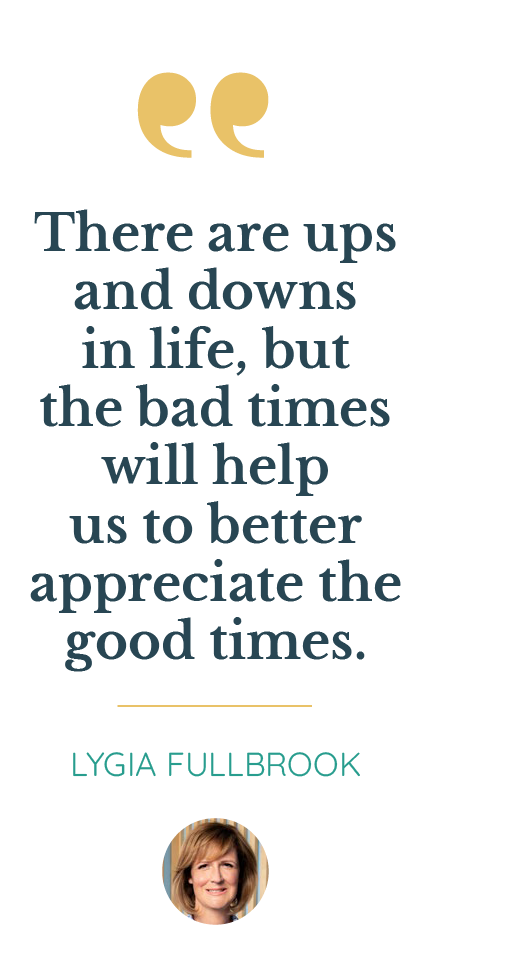 (DW) Let’s face it, we all have been impacted by Covid. For myself, living and leading through a crisis like Covid-19 has fundamentally changed who I am.
(DW) Let’s face it, we all have been impacted by Covid. For myself, living and leading through a crisis like Covid-19 has fundamentally changed who I am.
On the professional side, we all had to adapt to crisis leadership and new ways of working. For me, this meant investing a lot more in the people around me with empathy and patience. The benefit of this experience was I became more vulnerable and authentic as a leader.
On the personal side, I was unable to visit my family and friends back in Canada for over two years. As difficult as this was, it led to a better family relationship with my wife and son as we needed to rely more on each other. As a family, we have probably watched every popular NETFLIX series that you can think of, including Tiger King. We also spent a lot of quality time going on walks and enjoying time with our local friends here in Slovakia.
Were you able to identify any positive side effects or opportunities resulting from the present situation?
(LF) By nature, I have always had a more positive personality so even during the low points of the pandemic I was determined to look towards the brighter side of the situation we found ourselves in. I felt a need to energize myself, and home working meant I could start running more regularly than I had in the past. While running, I could also think about new ideas for our business, and how to seek advantages and opportunities from the pandemic.
I knew that BREXIT had led to some shortages of qualified people in the UK, and that remote working was now a more accepted possibility. I contacted my KPMG colleagues in London, and we came up with a plan to utilize our people remotely. I have an exceptional team, and they were able to execute this plan quickly and successfully in the UK, along with other EU countries, and even the USA. I hope we can continue to support our global client teams going forward, as this also brings huge benefits for our own teams in terms of knowledge growth and further opportunities.
(DW) A positive side effect of Covid is the realization of how important healthcare, technology, and collaboration are in our society.
With healthcare, we can appreciate the importance of having modern, well-functioning healthcare systems, with the ability of patients to have access to healthcare providers, services, and treatment-related interventions (innovative medicines, vaccines, diagnostics). The lessons learned from Covid have led to many countries in Europe to prioritizing healthcare with more investment to ensure better outcomes for patients.
With technology, we rapidly accelerated our digital adoption to support new ways of working. The challenge now is how do we maintain this momentum to modernize and digitally enable our business practices. It is important that we continue to evolve with innovation and to ensure countries like Slovakia remain progressive and competitive in this space.
With collaborations, Covid resulted in new public-private collaborations between governments and the private sector. For the first time, the European Union centrally procured medicine for the member states and pharmaceutical competitors joined forces together to accelerate manufacturing and distribution of the Covid vaccines and medical interventions. As we recover from Covid, private-public partnerships are becoming much more common. A good example of this is the Healthcare Lab Start-up Accelerator, which is a collaboration between the European Commission’s EIT Health, Roche and Civitta.
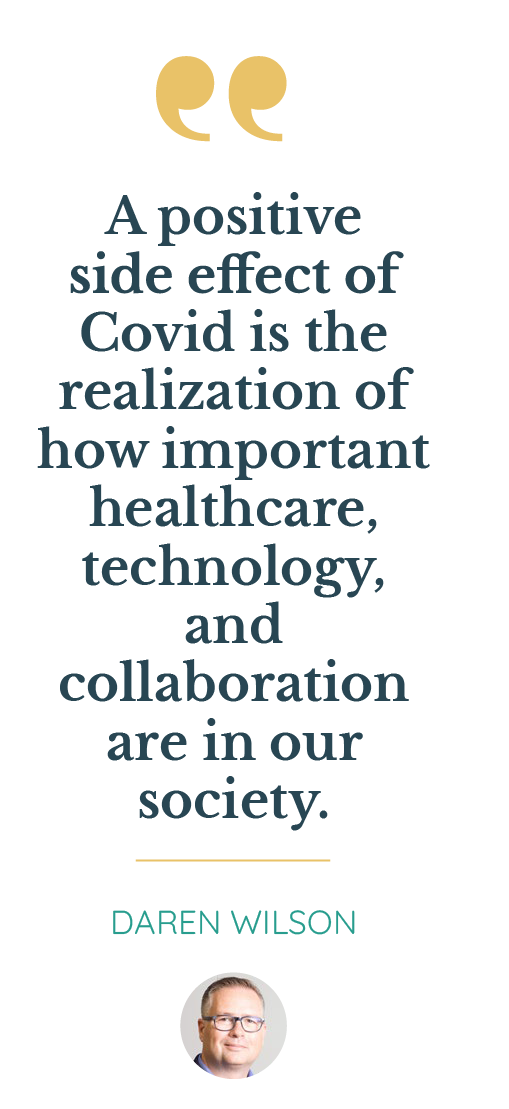 My hope is for Slovakia to embrace even more collaboration between government and the private sector, so we can combine efforts to build a business-friendly, innovation-based economy that is sustainable, resilient and prosperous.
My hope is for Slovakia to embrace even more collaboration between government and the private sector, so we can combine efforts to build a business-friendly, innovation-based economy that is sustainable, resilient and prosperous.
What is the favorite part of your day and why?
(LF) I have started to appreciate the little things that used to be totally normal two years ago. With the schools open again, I now enjoy the morning school-run with my youngest daughter Amelia. She sits next to me in the car, and we chat about life or listen to music. I look forward to lunches with colleagues or clients when they happen. They often feel like a special event after two years of lock-down. Evenings are for family, and my eldest daughter Olivia likes to discuss her day, at great length, each evening at bedtime and beyond.
(DW) Although I would never turn down a beautiful sunset over the Danube river, my favorite part of the day is the morning and the days when I can walk to work. These are the times where I give myself space to be creative and explorative in thought. By the time I get to work, I am full of ideas and fresh energy.
Do you have any habits or routines that help you maintain your work-life balance and work well for you?
(LF) Due to the pandemic, I have realized that home office can be a great benefit for me. Pre-2020 it was rare for me to work from home, and I often felt slightly uneasy about it. As we start to hopefully exit the pandemic, I realize that a hybrid-work model is an ideal one for me. I will always enjoy going to the office, as I feel that working closely with colleagues and clients is crucial to building and maintain relationships, as well as encouraging new ideas and perspectives. On the flip side, there are days when I am based at home, and I can concentrate fully on the task at hand. Being able to swap a commute for a morning run helps me to be energized and clear-minded for the day ahead.
With my family at weekends, we like to go for walks with Teddy, our chocolate lab, and we recently welcomed a new puppy, Zara, to the family. We like to spend time with extended family and friends, and family movie nights are always great fun.
(DW) It seems that with the Covid crisis and now the conflict in Ukraine, we have been living under a cloud of stress and uncertainty for the last couple of years. For myself personally, work-life balance meant ensuring good mental health and well-being. As a habit, I listen almost daily to motivational speeches to get myself into a positive mindset. This helps me to direct my energy towards my creative leadership at work and keeps my spirits up at home.
What advice would you give to your 20-something-year old self?
(LF) Enjoy being young, make good friends that you can rely on, and don’t worry about the future too much. There are ups and downs in life, but the bad times will help us to better appreciate the good times. You need to look for your luck at times and help it to find you.
(DW) Enjoy the moment, always be yourself, and buy Bitcoin…
What are the parts of your work that still excite you and give you motivation?
(LF) As a social person it is always my relationships with colleagues, clients and business partners that give me the greatest drive. In KPMG in Slovakia, I am a sector leader for the Business Services Centres sector. This puts me in regular touch with the representatives of this sector. With the support of AmCham I am running a program called Circles of Trust, for finance leaders in this sector. Knowing that this knowledge-sharing platform is useful and beneficial to all participants gives me great satisfaction and a feeling of fulfillment.
Two years ago, I became our office’s CSR leader. KPMG has always supported interesting initiatives related to education and encouraged volunteering. When I took over the role, I was aware that there is a passion in the firm at all levels, from the very top management to newly recruited colleagues about making our environment more sustainable and greener. I am proud that last year we started cooperating with the World Wildlife Fund (WWF) Slovak chapter. With their help, our colleagues planted an orchard of 70 trees in the village of Hlboké and we have further initiatives in the pipeline. Working alongside the WWF and our passionate KPMG colleagues is also something that greatly motivates and inspires me.
(DW) When I first arrived in Slovakia a couple of years ago, we had a listening session with two women with breast cancer who were part of the Amazonky patient group. Listening to their personal stories and struggles on trying to get quality care and access to innovative medicines was horrifying. This brought to life the statistics that by living in Slovakia, you have the highest risk of dying from cancer versus living in any other European country.
Healthcare inequality is an issue in Slovakia, especially when compared to neighboring countries. It is difficult to think about the poor outcomes patients face in Slovakia when they have restricted to no access to many innovative medicines that are readily available in the rest of Europe, including countries with weaker economic performance.
This is why I am excited by the hard work and efforts of the government to improve access to innovative healthcare in the country. If the necessary healthcare funding is provided, Slovakia will be able to close the healthcare inequality gap, especially for cancer patients. I truly hope to see the perception of healthcare financing in Slovakia shift from being considered a simple cost to being valued as a sustainable investment.
 Comparing healthcare in Slovakia to the seven other countries I have lived in, I am highly motivated to work towards a better healthcare system that enables access to modern medicine in this country. This is why I am proud and motivated to work for Roche, an innovative global healthcare company, where our mission in Slovakia is to help to improve healthcare in order to enable better outcomes to more patients faster.
Comparing healthcare in Slovakia to the seven other countries I have lived in, I am highly motivated to work towards a better healthcare system that enables access to modern medicine in this country. This is why I am proud and motivated to work for Roche, an innovative global healthcare company, where our mission in Slovakia is to help to improve healthcare in order to enable better outcomes to more patients faster.
If you had to make a career switch, in what other profession can you imagine yourself?
(LF) My first job after graduation was in finance administration. I liked the people I worked with in the finance department. I understood them and felt at ease with them. Whenever my job required me to communicate with them, or others in the organization, I was in my element. I realized that building relationships with people in finance was more motivating for me than the spreadsheets that I was editing.
Since then, I have changed jobs a number of times, but I have always tried to move towards the part of finance that motivated me all those years ago. It has been a great journey for me, and at this time I am in the kind of job that I could only imagine back then. I am lucky to work with a team of great finance talents, and together we are able to deliver strategic projects for our clients. My journey continues, and I feel that I am in the exact place I would want to be, if you had asked me the same question ten years ago.
(DW) If I had to make a career switch, I would jump immediately into a blockchain start-up that is focused on sustainability or healthcare projects. I am passionate about innovation and technology and enjoy the start-up mindset.
What is your biggest fear for the generation of your children? What about the biggest hope?
(LF) I do worry generally about worsening political situations and civil unrest. Recent events in Ukraine certainly heighten these worries. But in general, I have no fear for my children’s generation. The pandemic has shown us that the human species is well adapted to change, that when we pull together, we are as human beings a force for good, no matter what the future may hold I feel they will be able to deal with it. We hope to teach our children the basic values of solidarity and decency, and we encourage them to take education seriously. Most important of all is that they are happy and have close and supportive friends and family.
I hope they will be able to find their purpose in life, continue to be happy, and able to explore wherever the world can take them.
(DW) My biggest fear for the generation of my children is the quality of life and opportunities they will have in an unstable world under the threat of economic instability, polarized societies, warfare, disease, depleting food/water resources and climate change.
My biggest hope is that the generation of my children will take the lessons of today and tomorrow to redefine a future with better leaders, innovators, and peace makers.
“Human nature will find itself only when it fully realizes that to be human it has to cease to be beastly or brutal”, Ghandi
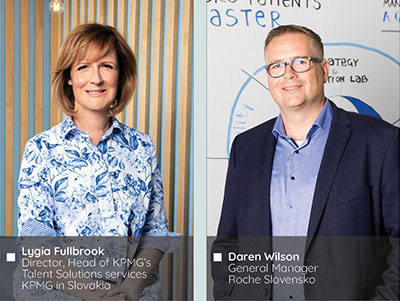
Lygia Fullbrook, Director, Head of KPMG’s Talent Solutions services, KPMG in Slovakia
Daren Wilson, General Manager, Roche Slovensko

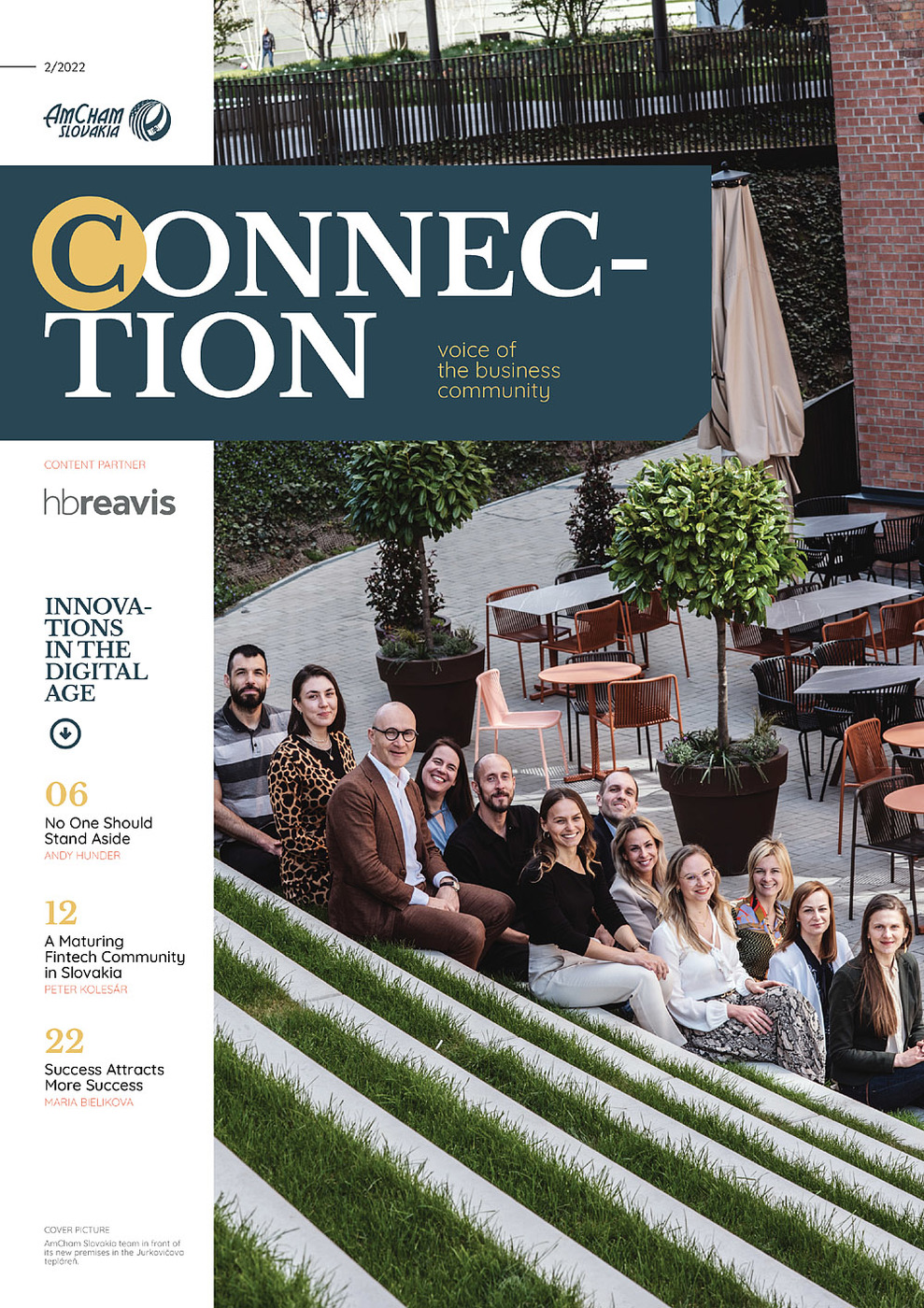
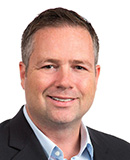
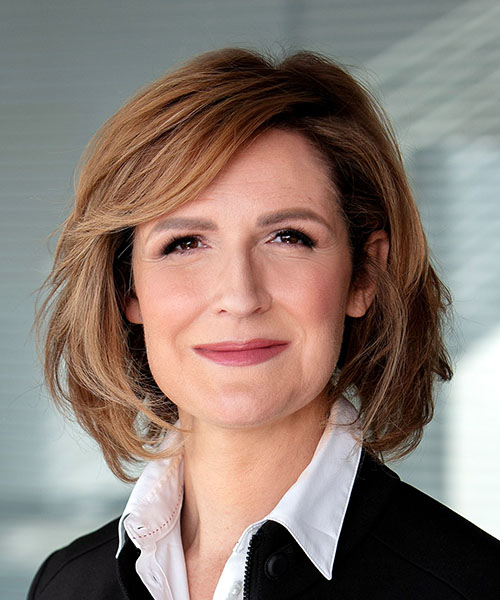
Follow us